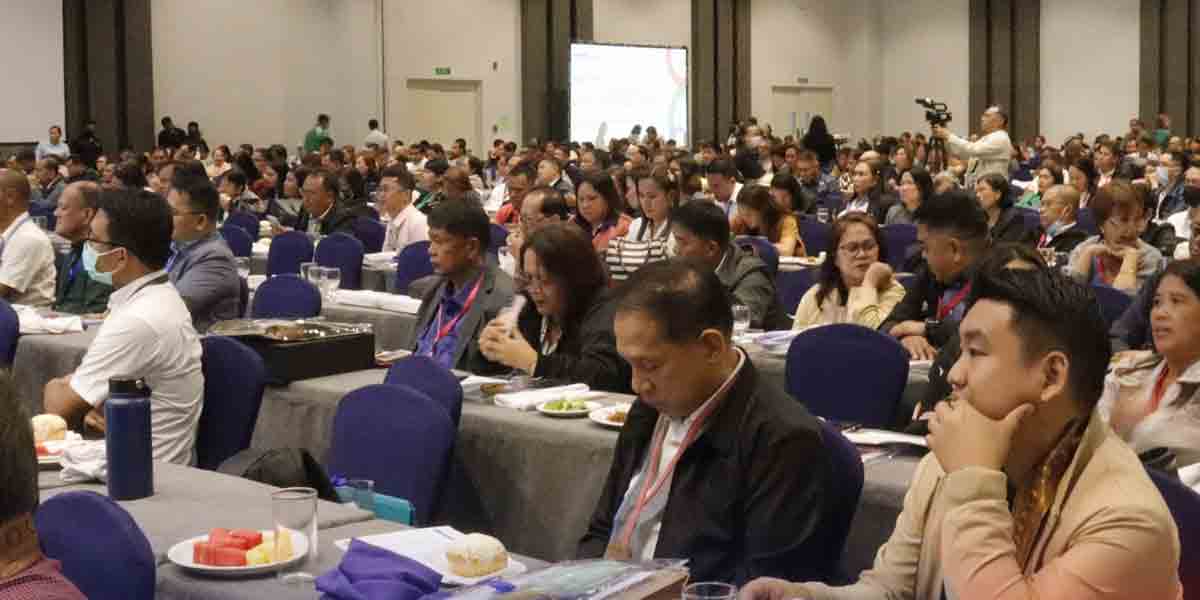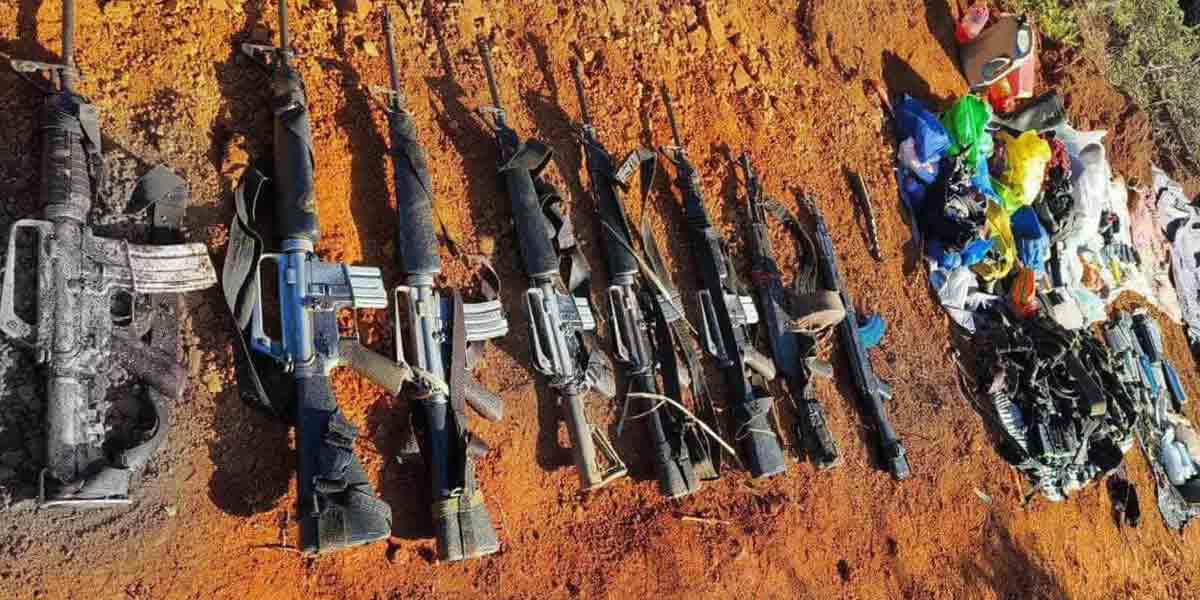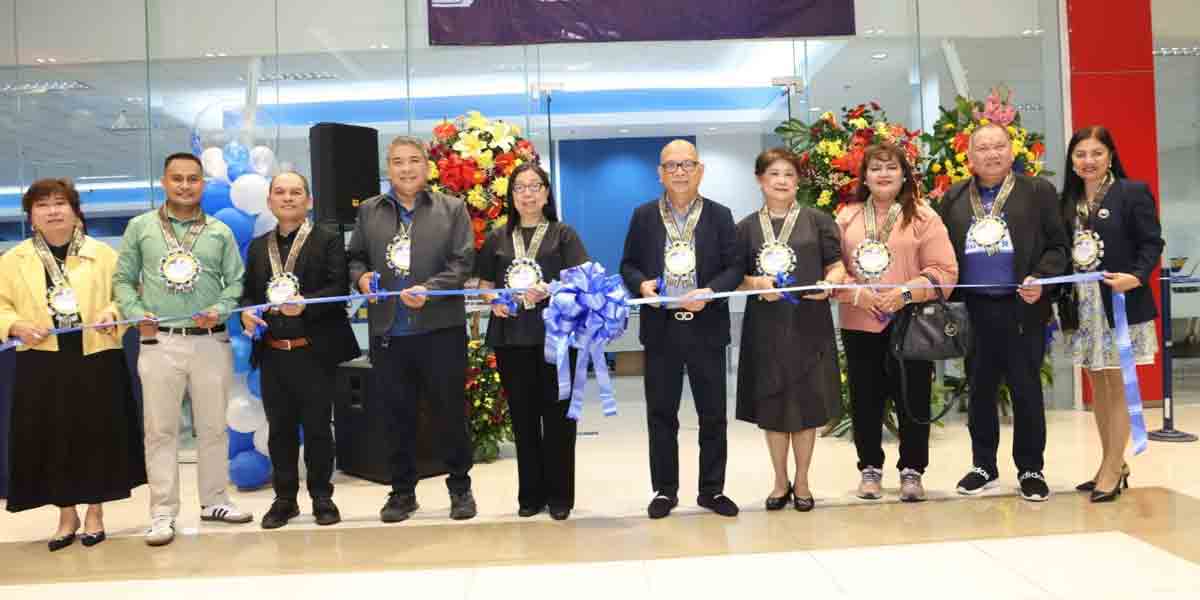By Japhet Quitzon and William Alan Reinsch
On May 9, 2022, the Philippines held elections for over 18,000 positions nationwide, including the presidency and vice presidency. With about 80 percent turnout, Filipinos went to the polls to choose between ten candidates for president. Of these ten, only two were serious contenders. Ferdinand “Bongbong” Marcos Jr. won 58 percent of the vote, the only presidential majority in post-1987 Philippine electoral history.
Marcos campaigned on a unity platform, pledging to heal the divides of a deeply polarized Philippines. Unfortunately, unity does not translate into concrete, thorough policy. Marcos won the election without attending a debate or presenting a coherent platform. Instead, he rode a massive wave of disinformation on social media that harkened back to the glamour and prosperity of the Philippines’ “Golden Age” under his father’s rule. Marcos won the “Solid North” of the country, where his family enjoys significant popularity and influence. Brokered by former president Gloria Arroyo, Marcos’s partnership with Sara Duterte (outgoing president Rodrigo Duterte’s daughter) helped win him the votes of the Solid South in central Visayas and Mindanao. Despite the promised return to a “Golden Age,” neither the Marcos nor Duterte transition team present a plan to get the Philippines there. There is uncertainty about how Marcos will manage the country moving forward. Moreover, the tenuous Marcos-Duterte alliance, or “UniTeam,” will test their shared approach to governance.
Q1: What do we know about Marcos’s economic and trade policy?
A1: With no established economic policies, Marcos will inherit a country deeply in debt and still recovering from the worst of the Covid-19 pandemic. Current debt in the Philippines is 12.68 trillion PHP ($242 billion), equivalent to 63.5 percent of its GDP, while the unemployment rate hovers around 5.8 percent. At 4.9 percent, inflation is rising at the highest rate since December 2018. Generally, the Philippine economy is headed for a post-Covid recovery; initial estimates suggest that the country will return to pre-pandemic GDP growth this year. Marcos’s lack of a platform makes it uncertain if he will be able to steward over the Philippines’ continued recovery.
Crumbs of Marcos’s potential economic and trade policy shine through in his speeches, statements, and vlogs. He makes frequent overtures to the poor, best exemplified in his promise to lower rice prices to 20–30 PHP per kilogram of rice ($0.38–$0.57) through subsidies. Although the Philippines retains significant debt from the elder Marcos’s pursuit of infrastructure projects, the incoming Marcos is also likely to make infrastructure spending a hallmark of his time in office. He plans to continue the outgoing Duterte administration’s “Build, Build, Build” infrastructure program.
Generating jobs and addressing the unemployment rate is another priority for the incoming government. Marcos does not have an official unemployment reduction plan. Like many of his proposals, Marcos uses vlogs or short interviews to give quick overviews of his stance on unemployment reduction. Marcos will focus on creating business, agriculture, tourism, and infrastructure jobs. Prioritizing micro, small, and medium enterprises (MSMEs) is key to his agenda. In his “Increasing Jobs” vlog, he highlights the tourism industry as a promising sector for MSME expansion. He suggests that encouraging domestic and foreign tourism in the country will provide a significant number of jobs, a remedy for the country’s quick recovery.
Marcos plans to pass legislation to improve business conditions in the Philippines, which ranks 95th globally for ease of doing business. Marcos is keenly aware of the Philippines’ importance in regional trade. Duterte signed a law amending the Philippine Public Service Act, which amended the 1987 Philippine Constitution to allow foreigners to claim 100 percent ownership of public services like telecommunications, railways, and airlines. In addition, Duterte’s amendment of the Foreign Investment Act enables foreign investors to fully own domestic enterprises in the Philippines. With the Duterte administration’s attempts at trade liberalization, exemplified in Foreign Investment Act, Retail Trade Liberalization Act, and the amendment to the Public Services Act, the incoming Marcos administration can create more comprehensive free trade agreements and attract more foreign direct investment. AmCham Philippines even expressed its hopes that a Marcos administration could promulgate a U.S.-Philippines free trade agreement, although that seems unlikely, if only because the United States seems disinclined to negotiate free trade agreements with anyone.
Marcos’s ability to attract foreign direct investment will be important. His drive to reduce the roadblocks for foreign businesses will present great opportunities for foreign direct investment and potentially free trade deals, but thus far he has no economic transition team and has not named an economic minister, an issue of grave concern to foreign investors.
After Japan, the United States is the Philippines’ second -largest trading partner. U.S. support is valuable to the Philippines, where both the United States’ financial power and cultural soft power greatly influence the country. With strong historical ties to the United States, Marcos will seek common ground to advance common goals in the region.
Q2: Has he positioned himself more firmly with the United States or China?
A2: President-elect Marcos should find a way to navigate between the Philippines’ relationship with the United States and with China, and the pressure is on. The first two heads of state to greet him on his victory were Presidents Xi Jinping and Joe Biden. Anti-China sentiments in the Philippines curtailed his predecessor’s efforts to bring the Philippines closer to China. Nevertheless, Marcos hopes to maintain a strong relationship with China, even to the point of abandoning the Philippines’ Hague arbitration win over the South China Sea. In 2013, the Philippines submitted a complaint against China after a series of incidents at Scarborough Shoal. The Philippines sought an international tribunal to reject China’s claims over resource-rich areas under the “ nine-dash line,” some of which are also claimed by the Philippines. The arbitral tribunal ruled in the Philippines’ favor in 2016. Initially, Marcos’s predecessor was keen to sacrifice this arbitration win as a bargaining chip in negotiations with China; however, these efforts proved to be deeply controversial. Marcos believes that the arbitration ruling was “not effective,” instead stressing the importance of continued dialogue and a bilateral agreement with China. Notably, he does not want the United States involved in any negotiations, arguing that “if you let the U.S. come in, you make China your enemy.”
Marcos is an ardent supporter of Chinese business. As governor of Ilocos Norte, he made frequent business trips to China, culminating in the opening of a Chinese consulate in Laoag City, the capital of the province. Moreover, the Duterte administration’s partnership with China for infrastructure projects will greatly appeal to Marcos. Members of the ruling economic class, many of which are related to the Marcos family or aligned with them personally, will urge Marcos to support Chinese investment. The political elites can sometimes wield their power to sway Chinese firms and state-owned enterprises to their benefit. Under Duterte, for example, Chinese banks, state-owned enterprises, and other private firms were encouraged to invest in the Philippines. His amendment to the Public Services Act allowed for deeper investments from foreign businesses, including China.
Marcos has indicated he will not abandon the U.S.-Philippines alliance. He does not bear the same anti-Western sentiments as his predecessor and will not likely resort to extreme shifts, such as threatening to terminate the Visiting Forces Agreement, which provides “simplified access procedures to the Philippines for U.S. service members on official business” and also “provides a series of procedures for how to resolve issues that may come up as a result of U.S. forces being present in the Philippines.” It is a cornerstone of the U.S.-Philippines alliance. Marcos is trying to start his relationship with the United States on the right foot. He extended an invitation to President Biden for his inauguration. However, Marcos could face difficulties if Biden reciprocated with an invitation to the United States as it is uncertain if he can travel there. As executor of his father’s estate, Marcos is currently held in contempt by the United States District Court and Court of Appeals for “contumacious conduct causing direct harm to [a class of human rights victims].” He owes $353 million to victims of martial law he refuses to pay.
Q3: How likely is it that the Philippines’ international economic engagement strategy will change significantly under new leadership?
A3: Marcos presents no plan for economic engagement; however, his emphasis on improving ease of business in the Philippines and passion for infrastructure suggest that his international economic engagement strategy will likely build off the Duterte administration’s approach, albeit without the colorful language. A mild-mannered speaker, Marcos’s overtures will come off as more genteel and traditional than his predecessor.
On paper, the Philippines is an ideal location for foreign businesses seeking to gain a foothold in Asia. English is a lingua franca, and the Philippines is strategically located close to China and the rest of Southeast Asia. However, it is not the most hospitable location for foreign businesses to operate. The 1987 Constitution mandated that all businesses operating in the Philippines be at least 60 percent Filipino-owned. In addition, the corruption, cronyism, and nepotism embedded in Philippine politics further reduce the appeal of setting up shop in the country. Finally, President Duterte’s often unpredictable actions, notably exemplified by his bloody drug war, played a role in discouraging countries from pursuing deeper economic partnerships with the Philippines.
Though the Philippines would greatly benefit from increased foreign investment and stands to boost its appeal, Marcos’s alliances with Philippine oligarchs raise questions about corruption, graft, and cronyism. Based on the his family’s actions, which he neither disavowed nor apologized for, the international community would be wary of directing funds toward the Philippines.
The incoming Marcos administration should both conduct itself well and improve the country’s image to increase the Philippines’ economic appeal. If the efforts of his proposed clampdown on corruption and legislation on improving ease of doing business bear fruit, the Philippines will be better positioned for deeper international trade relationships.
Q4: Has the Philippines expressed an interest in joining the Indo-Pacific Economic Framework (IPEF), and if so, which policy pillars would Marcos find most enticing?
A4: In April 2022, Minister Ramon M. Lopez from the Philippine Department of Trade and Industry met with U.S. trade representative Katherine Tai in Washington, D.C. During the meeting, Minister Lopez expressed the Philippines’ interest in the Biden administration’s IPEF. Of the elements of IPEF, he emphasized the importance of “trade, MSME promotion and development, digital economy, supply chain resiliency, environmental sustainability, and investment in infrastructure.” As of May 2022, the Philippines joins the United States and 11 other partners in the initial launch of IPEF. In his first press conference as presumptive president, Marcos explained that the Philippines is “very much involved” in IPEF negotiations, citing recent his discussion with the U.S. chargé d’affaires.
Marcos would be interested in pillars of IPEF that create tangible benefits for the Philippines. A vast amount of his support came from the working class of the Philippines, who believed he would enact the most immediate change to their quality of life. Poor infrastructure, lack of affordable housing, and expensive, unreliable telecommunications networks remain serious problems for many Filipinos. Marcos is unlikely to subscribe to all four pillars of IPEF if the Philippines is ultimately invited to participate. IPEF’s infrastructure and clean energy would be the most appealing to him.
As previously mentioned, infrastructure is one of Marcos’s top priorities. He aims to fold his predecessor’s “Build, Build, Build” programs into his administration and would welcome assistance for major infrastructure projects. In keeping with his campaign, perhaps most chillingly exemplified in the adaptation of a martial law-era march into a pop song, Marcos promised to bring back his father’s “Bagong Lipunan [New Society] Improvement of Sites and Services” housing project to create jobs and affordable housing. Improving digital infrastructure and connectivity will also be a key priority.
Marcos expressed interest in climate change solutions and adaptations. He may be willing to work with the United States on climate change, aligning with IPEF’s decarbonization and clean energy. He asked for larger emitters like the United States and China to do their part in reducing global emissions, underscoring that poorer countries should not have to pay the consequences for the decisions of richer countries. He urges developed countries to “help the little ones” with climate action. Moreover, he emphasizes the importance of climate change adaptation to prepare the Philippines, a country at greater risk of climate-induced disaster. Renewable energy may play a large role in Marcos’s proposed infrastructure programs. The Bangui Windmills project in Ilocos Norte, Marcos’s home province where he was once governor, is often touted as proof of Marcos’s commitment to climate, progress, and infrastructure. Though the windmill projects were not related to any action taken by his governorship, the windmills were a key motif in his campaign.
Marcos has no specific stances on other relevant aspects of IPEF. The country holds the potential for playing a greater role in securing regional supply chains. Pervasive graft, corruption, and cronyism, alongside difficult foreign business regulations, will not make them an appealing choice for companies looking to friendshore production in Asia. In addition to complicating the fair and resilient trade and supply chain resilience pillars, these issues are likely to make any talk of IPEF’s tax and anti-corruption pillar a nonstarter.
Q5: When it comes to trade policy in the Philippines, where is there the most room for progress?
A5: The Philippines is historically a deeply protectionist country, which is in no small part a consequence of the United States’ colonial legacy. Since 1981, the country continues to inch toward trade liberalization. The Public Services Act passed by President Duterte in April 2022 greatly improved the Philippines’ ability to attract foreign investors. By relaxing the longstanding requirement for public services to be 60 percent owned by Philippine citizens, there are fewer legal barriers to foreign investors seeking to invest in public utilities and internet services. Duterte’s economic liberalization reforms are projected to help the Philippines economy grow back to a pre-Covid level. Though Duterte’s ratification of the Regional Comprehensive Economic Partnership (RCEP) is stalled in the Senate, his Corporate Recovery and Tax Incentives for Enterprises (CREATE) law, and amendments to foreign investment laws leave Marcos with a reformed system capable of enhanced trade.
Theoretically, these reforms would help encourage foreign investment and improve the Philippines’ standing in international trade. Comprehensive reforms, like those promulgated by the outgoing administration, require strict adherence to rule of law. The government and its courts lack the transparency that would reassure investors. As such, the Philippines can best encourage foreign investment by making progress in improving government transparency and reducing corruption.
Japhet Quitzon is a program coordinator and research assistant with the Scholl Chair in International Business at the Center for Strategic and International Studies (CSIS) in Washington, D.C. William Reinsch holds the Scholl Chair in International Business at CSIS.
Critical Questions is produced by the Center for Strategic and International Studies (CSIS), a private, tax-exempt institution focusing on international public policy issues. Its research is nonpartisan and nonproprietary. CSIS does not take specific policy positions. Accordingly, all views, positions, and conclusions expressed in this publication should be understood to be solely those of the author(s).





















